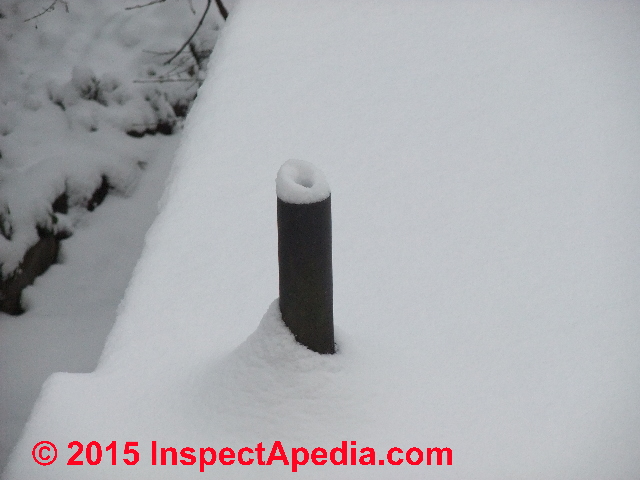The location of a sewage smell can be a big clue about its source.
Septic tank backup smell.
The smell of sewage is never a good thing but it can be especially disturbing when the smell is coming from your own septic tank.
An odor inside typically does not mean that your septic tank needs to be pumped but are more often an indication of a plumbing problem.
The ph levels in these gases are too acidic for the microorganisms in the tank to digest the organic matter causing the tank to smell.
There are two different types of septic systems.
Inside the building sewer gas rotten egg or methane smells may be observed.
Heavy air days produce odors which are more noticeable than light air days.
Septic tanks use a vent pipe or stink pipe to stabilize pressure within your house s plumbing system.
This problem happens when gases that are supposed to escape get redirected back into the house.
When the septic tank reaches an overflow capacity gravity then drains the liquid out to the disposal field.
A blockage at the septic tank can cause sewer gases to back up into the building.
Your septic tank has the potential to develop odor that can be released into your surroundings.
All you need to tell that something is wrong with the septic tank is a good sense of smell.
Smelly septic tanks are a result of the presence of gases in the system including hydrogen sulfide carbon dioxide and methane.
Why would a septic tank smell.
Sewage backups are one of the worse symptoms of a failing septic system.
If water is backing up when you run the washing machine or worse yet sewage has backed up into the house it s time to call for help.
Septic tank odor is a common problem in septic tanks.
In turn these bacteria produce large quantities of hydrogen sulfide methane gas carbon dioxide and organic acids.
If you smell a strong sewage odor outside your home or building your septic tank or faulty sewer line or a neighbor s is likely to blame.
It will affect the quality of a person s life if the odor starts seeping into the house.
Blockages at the tank range from very costly a failing drainfield to less costly a blocked or damaged sewer line between the septic tank and the distribution box.
Usually hydrogen sulfide and methane gases are released.
As a homeowner it s important to be able to identify the cause and know what to do about the problem.
Sewer gases formed in the septic tank can return to a building interior by backing up from the septic tank inlet baffle and pipe to the building drain waste vent piping.
What makes a difference in septic tank backups is the overall type of septic tank system you have.
This particular sign of a full septic tank can be astronomically expensive as a homeowner.
Sewage backup not every full septic tank is nice enough to give you the warning of slow or sluggish drains.
The odor stems from a highly acidic ph level in the tank.
More times than not the sewage will just begin to back up into the house when the septic tank is full.

